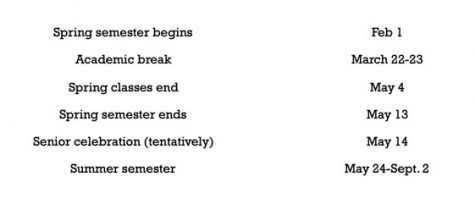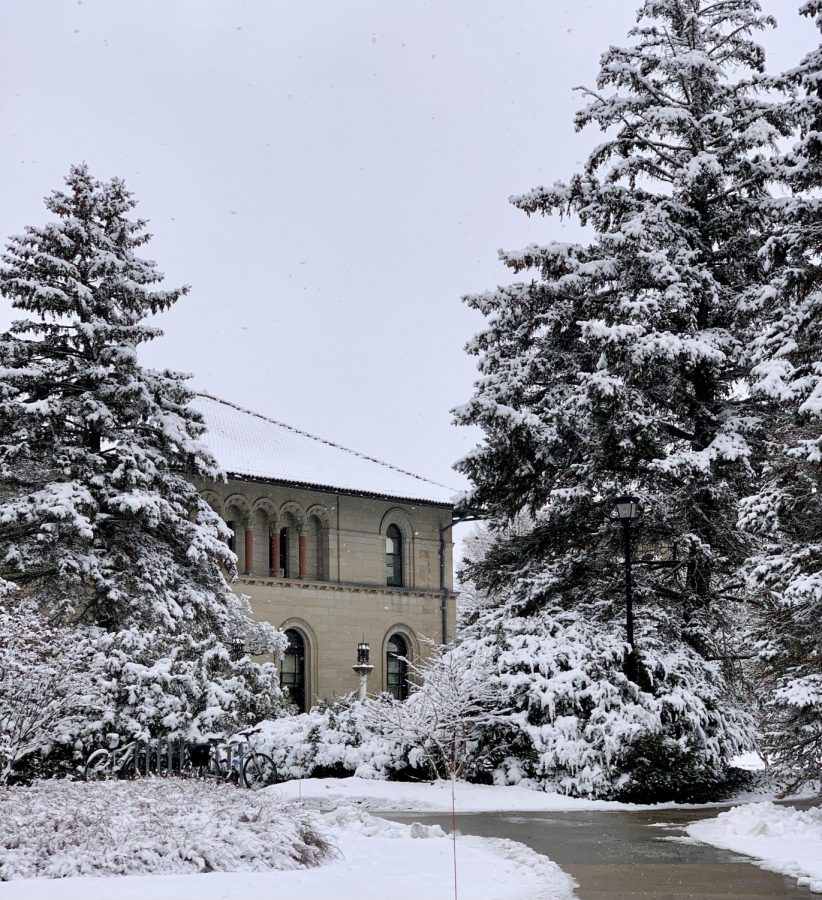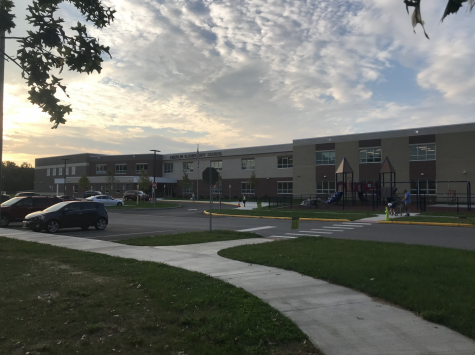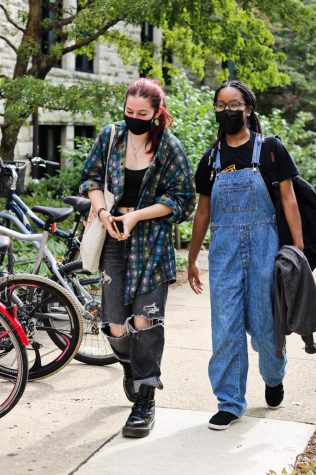Spring Semester Delayed Three Weeks as COVID-19 Cases Surge
College administrators hope that by delaying the spring semester, students will avoid the worst of the winter cold and will be able to spend more time outside to reduce the spread of COVID-19.
The College postponed the start of the spring 2021 semester from its original start date of Jan. 7 to Feb. 1, in response to the surge in COVID-19 cases nationwide and in Lorain County. President Carmen Twillie Ambar announced the delay in a Nov. 22 email to the Oberlin community, explaining that the shift allows time for any holiday spread to resolve before students return to campus.
“If we wait to bring students back, then any infection from the holiday will already be done,” COVID-19 Campus Health Coordinator Katie Gravens said in an interview with the Review. “If people get together on New Year’s Eve, then we’re looking at a two-week window after that where infection can present. If we wait and bring them back on Jan. 25, all of that infection should be cleared. Hopefully that is also going to give time for all of the public health efforts that are being encouraged, like masks, [to] see an improvement in the situation.”
Additionally, pushing the spring semester back will create more opportunities to be outside, where ventilation is better and spread is significantly reduced.
“Another thing that we talked about was that if we delayed, we would actually end up having more days with good weather in the spring where activities could be held outside,” Gravens said. “We know when the weather was good, we didn’t have as many cases. It was when the weather got bad and people started going inside that we began to see a surge.”
COVID-19 incidence has been increasing across the country, with Ohio specifically reporting upwards of 6,600 new cases a day. This uptick, coupled with a predicted spike in cases during the holiday season, led Governor Mike DeWine to warn in a Nov. 12 announcement that he may ask Ohio colleges not to return to campus in January. His final decision will come in mid-December.
President Ambar explained that the governor’s warning was a factor in the decision, but that the administration made the decision to adjust the semester independently of this possibility.
“While we do not believe it is highly likely that the Governor will require online learning in January, we did want to avoid having our families having to make quick travel plans in the latter part of December,” President Ambar wrote in an email to the Review. “Oberlin has students literally from all over the world, so quick alterations to travel plans are particularly difficult for our students.”
In her email, President Ambar also explained that the shift will subsequently delay the start of summer semester, but she wrote that the change was manageable.
This semester many students struggled with the suspension of fall break. Some have voiced concerns for College third-years who will be enrolled in four consecutive semesters without a summer vacation due to the three-semester plan. According to the current academic calendar, the spring semester will end on May 13 and the summer semester will start on May 24, leaving only 10 days off in between terms.
Dean of the College of Arts and Sciences David Kamitsuka hopes to mitigate student burnout, explaining that the College recently added a two-day break in the spring during March 22 and 23, around the time that spring break would traditionally have taken place.
“We are all concerned about rest between semesters for students and faculty,” wrote Dean of the College of Arts and Sciences David Kamitsuka in an email to the Review. “This is particularly a concern for Juniors who will be enrolled in both Spring and Summer semesters. The challenge is trying to fit in this academic year while minimizing the impact on future academic years. I’m glad that we were able to build in no-class days in both the Spring and Summer semesters.”

Despite the delay, the College anticipates a return to campus in the spring.
“We have also heard from students that preserving the in-person experience is paramount, and this change to a delayed start gives us the best opportunity to ensure in-person classes the longest,” President Ambar wrote.
Following this change in the semester, the deadline to apply to take a personal leave of absence for spring semester has been extended to Jan. 4, according to Associate Dean of Academic Advising & Registrar Trecia Pottinger in yesterday’s webinar.
The College is preparing to offer new COVID-19 protocols next semester, including rapid tests, to strengthen Oberlin’s ability to contact trace and prevent spread. Academically, there will be changes to registration and the add/drop period in order to accommodate for social distancing.
“In Arts and Sciences, we’re going to have more classes in the spring than we typically have — some 605 classes,” Kamitsuka said. “Sixty-eight percent of those classes will be either in-person or hybrid, and about half of the classes will be remote accessible for students that are studying at a distance.”
There will also be changes to make the add/drop experience easier and prevent large gatherings that could occur as students move in and out of new classes in the first week.
“We’re going to have every course syllabus available on Blackboard, and also links to those classes,” Kamitsuka said in yesterday’s webinar. “So instead of shopping around physically by going to classes, which we need to avoid for our de-densification protocol, classes in that first week will be available for you to join via Zoom.”
This development also brings unique changes to the Conservatory. Conservatory students attend the fall and spring semesters and, in the original plan, were supposed to complete their Winter Term in May 2021. The delayed start will allow Conservatory students to earn Winter Term credit in January 2021.
“For many students, completing [Winter Term] in January will give them increased flexibility in early summer as they make the transition from the spring semester to activities such as summer festivals,” Dean of the Conservatory William Quillen wrote in an email to the Review. “Other Conservatory students and faculty have already started planning for a May Winter Term and will likely continue to develop those plans. Given the extended lead time, we expect a handful of formal group projects to be offered during the May/June Winter Term period and will also be supporting students through the [XARTS] and Flint Initiative Grants at that time.”
The administration has yet to make a decision on whether the 2021–2022 academic year will also follow a three-semester model, but President Ambar explained that this will depend heavily on the outlook of the COVID-19 crisis at the end of next year.








